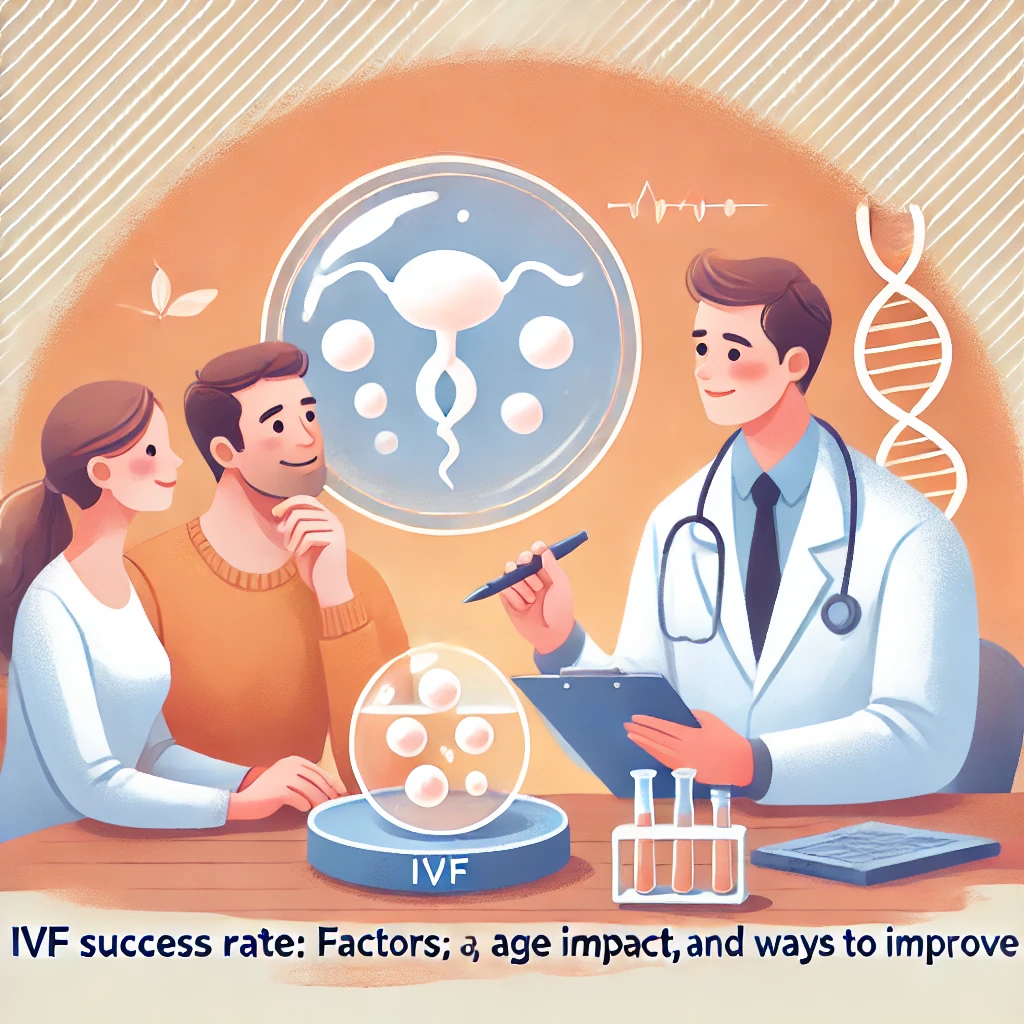Understanding IVF Success Rate
In-vitro fertilization (IVF) stands out as one of the most sophisticated fertility treatments available. It brings hope to couples facing infertility challenges. The success of IVF can vary widely. It depends on several factors. These factors include the woman’s age, overall health, and the specific clinic they choose.
Key Factors Influencing IVF Success Rate
Age of the Woman
- When it comes to IVF success rates, age plays a crucial role. As a woman gets older, the chances of success tend to drop significantly.
- For women under 35, the outlook is much brighter, with success rates often exceeding 50% per cycle.
- On the other hand, women over 40 may experience success rates as low as 5%. These rates can go up to 20% if they’re not using donor eggs.
- However, if they opt for donor eggs, those success rates can jump to around 40%-50%.
Number of IVF Cycles
- The success rate for a second IVF cycle is generally better than the first, giving couples renewed hope.
- Research indicates that after two cycles, the cumulative success rate can reach about 60%-70%.
- Many couples find that repeated attempts lead to improved outcomes, with success often achieved within 2-3 cycles.
Embryo Quality and Blastocyst Transfer
Transferring a healthy blastocyst can significantly boost the chances of successful implantation during IVF.
Underlying Medical Conditions
- For women with PCOS, the success rates can vary, but they often respond positively to controlled ovarian stimulation.
- Endometriosis can complicate things, potentially lowering success rates, but with the right treatment, these challenges can be managed.
- The impact of endometriosis on IVF success rates can differ based on its severity. Techniques like assisted hatching or PGT-A may enhance outcomes.
Types of IVF Treatment
- Intracytoplasmic Sperm Injection (ICSI) can improve fertilization rates, especially in cases of male infertility.
- While ICSI may offer slightly better results in certain situations, its effectiveness largely depends on the quality of the sperm.
- Testicular sperm aspiration (TESA) is a technique used for azoospermia, and its success rates can vary.
When it comes to IVF success rates in India:
- They typically fall between 30% and 50%, depending on the clinic and the individual patient’s situation.
- Indira IVF boasts a success rate of about 60% for younger patients, which is quite impressive.
- Nova IVF’s success rates hover around the industry average of 50%, making them a solid choice for many.
- AIIMS Delhi, known for its excellence, offers high success rates thanks to its cutting-edge technologies.
- Cloud Nine IVF sees varying success rates that depend on the patient’s age and profile.
- Gunasheela IVF is reported to have a competitive success rate within the fertility sector.
- The Pune branch of Indira IVF shows success rates that are on par with other Indira IVF locations.
- Jindal IVF has a respectable success rate, focusing on personalized treatment plans for their patients.
When it comes to donor egg IVF:
- The success rates are generally higher than traditional IVF, often reaching between 60% and 70%.
- In India, many clinics report donor egg IVF success rates exceeding 50%, which is encouraging for hopeful parents.
Looking at IVF treatment success rates:
- They can range from 30% to 70%, influenced by factors like age and the type of treatment.
- As for the cost, IVF cycles typically range from INR 1.5 to 2.5 lakh, with extra fees for advanced techniques.
To boost your IVF success rate, consider these tips:
- Opt for a reputable clinic with skilled specialists.
- Keep a healthy weight and eat a balanced diet before starting your IVF journey.
- Stick closely to your doctor’s guidelines regarding medications and lifestyle adjustments.
- Think about genetic screening (PGT-A) to help with embryo selection.
- Manage your stress levels, as mental well-being plays a crucial role in fertility.
In conclusion, the success of IVF is shaped by a mix of medical and lifestyle factors. Younger women and those using donor eggs tend to have better odds. However, women over 40 can still achieve pregnancy with the right strategies. Selecting a well-regarded clinic and adhering to best practices can greatly improve your chances of success.







